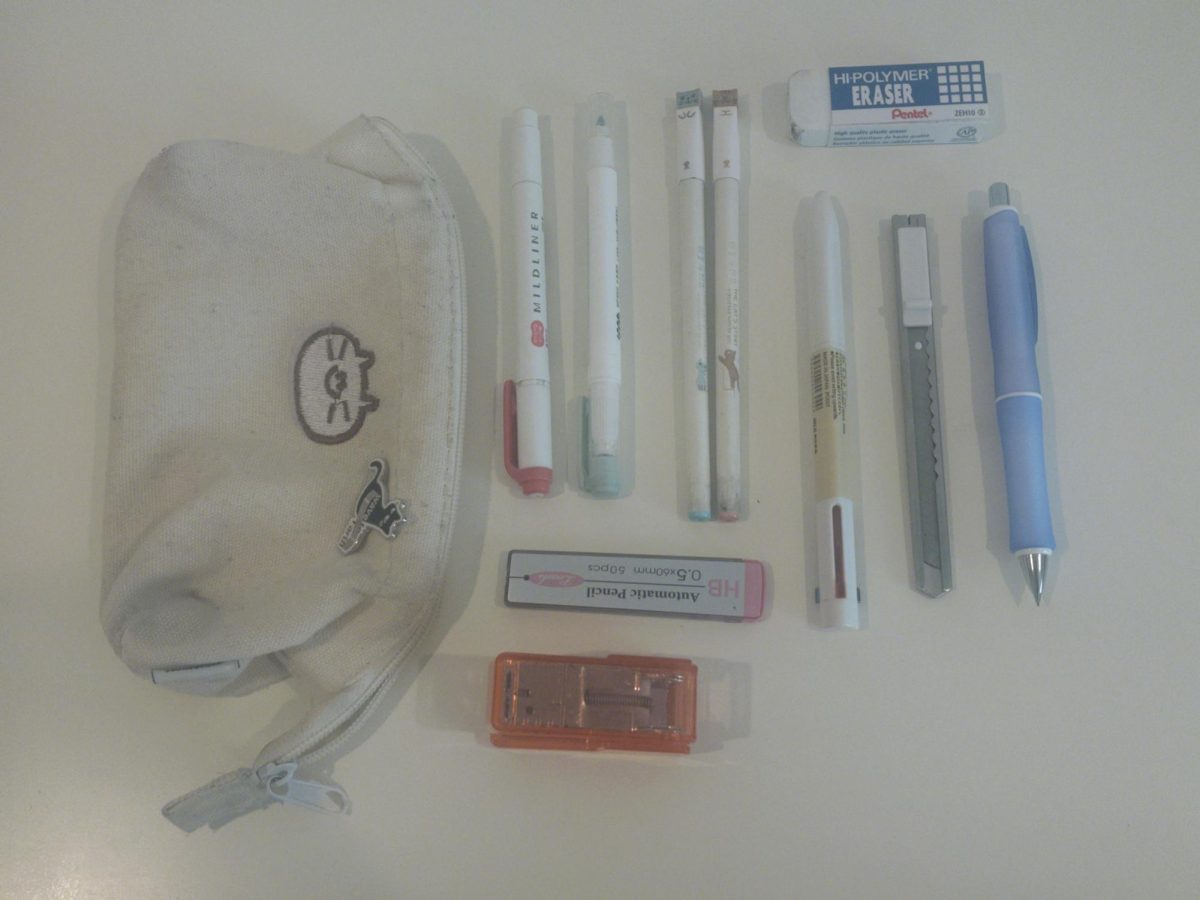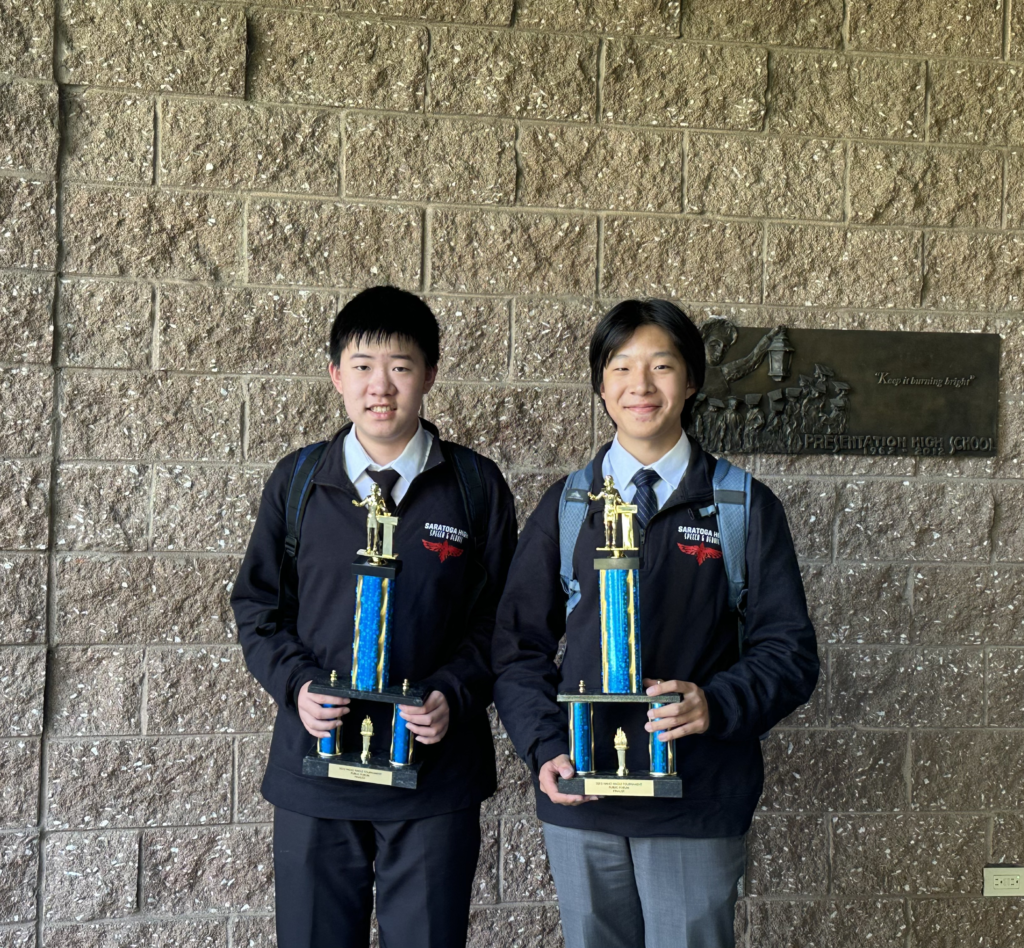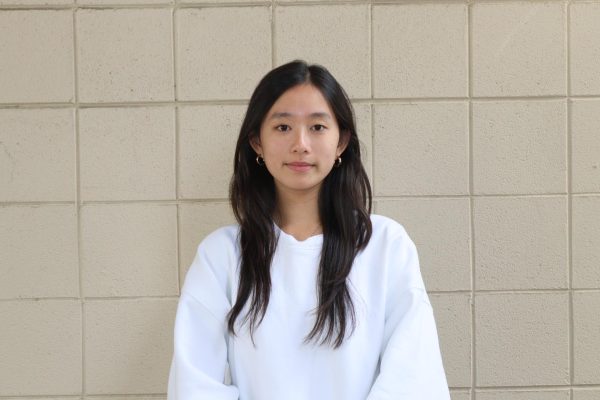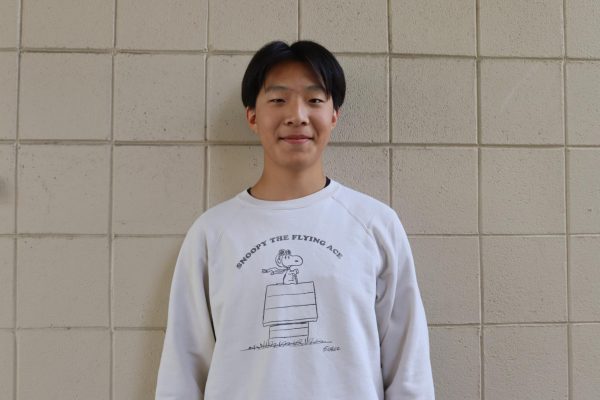As sophomores Jet Tsang and Bryan Zhao nervously headed into their first round at the Nano Nagle Invitational at Presentation High in San Jose on Oct. 6 — apprehensive about their first in-person tournament of the season — they took a deep breath, clearing their minds.
After smoothing his suit and finalizing his opening statement, Zhao stood up and gave his constructive speech arguing why an increased U.S. military presence in the Arctic would be detrimental to national interests.
Alongside sophomore Anthony Luo and junior Skyler Mao, who made it to finals and placed second overall at the Nano Nagle, the four competitors also attended the Yale Invitational the week before on Sept. 29, where Tsang and Zhao placed 21st seed, while Luo and Mao placed second.
Competing in tournaments like the Nano Nagle — one of the most competitive tournaments in the Bay Area — and the Yale Invitational was a culmination of an entire summer’s worth of research and preparation. For Tsang and Zhao, this meant attending summer camps with Nova Debate, where they solidified their fundamental debate skills while also practicing drills such as weighing hypothetical impacts of arguments or giving impromptu rebuttals.
Public forum debates consist of back-and-forth speeches between two teams on opposite sides of a topic “ripped from the headlines,” which is selected based on a nationwide vote polling of students and coaches a month before tournaments begin during that cycle. For September and October of this year, the topic selected was “Resolved: The United States Federal Government should substantially increase its military presence in the Arctic.”
“I personally didn’t really like [the topic] since there’s a lot of ambiguity about the exact definitions,” Zhao said. “That led to a lot of debate around whether scenarios would actually happen or what defines a substantial increase in military presence in the first place.”
Tsang enjoyed debating real events surrounding modern-day geopolitics, especially those concerning the U.S., Russia and China. Both partners had to prepare evidence, arguments and responses on both sides of the topic to set themselves up for success.
Preparations accelerated once practices started in September, and on Sept. 29, Tsang and Zhao competed in the online Yale Invitational tournament alongside two other public forum teams from the school.
Their performance reflected their efforts well, as they won five of six preliminary rounds and placed 21st of 289 teams. During their second elimination round, however, the team focused their efforts on one of their arguments but missed one of their opponents’ responses to it, a relatively small blunder that cascaded into a loss and knocked them out of the bracket.
“After finding out we lost, I definitely felt sad and angry that we had let that happen to us,” Zhao said. “But I also felt a spark inside that motivated me to want to improve and win in the future.”
The overall team performance was strong, with Luo and Mao going undefeated in preliminary rounds and ultimately placing second seed.
According to Zhao, a large factor in their loss was the fact that online tournaments often make clear speech and enunciated voices difficult. Zhao recalls that during the invitational, his voice was often muffled due to WiFi issues, making his speech less coherent to the judges.
Though the team was slightly disappointed by the results, they still found the experience to be enjoyable and had high morale going into the following Nano Nagle Invitational.
“During in-person tournaments, you’re able to get to know your opponents better and express yourself more to the judges using body movements and such,” Zhao said.
At Nano Nagle, the team as a whole performed well. Luo and Mao went 4-2 in preliminary rounds, advancing through the bracket and ending up losing the finals round to a team of seniors. They placed second overall, qualifying for the prestigious Tournament of Champions in April.
Tsang and Zhao went 3-3, preventing them from qualifying for the elimination rounds.
For Tsang and Zhao, although the in-person tournament provided more interactive and clear-cut debates, other problems arose from standing in front of real people. Since they had only been partners for a few months, cohesion and coordination within each round proved to be a challenge that hindered their success. They look forward to honing their communication skills in preparation for future tournaments such as the John Lewis SVUDL Invitational on Nov. 17.
“I think that we need to work more on the substance of the argument itself, but also refine our speaking skills to ensure that the judges can see that we are passionate and knowledgeable about our topic,” Zhao said.






























